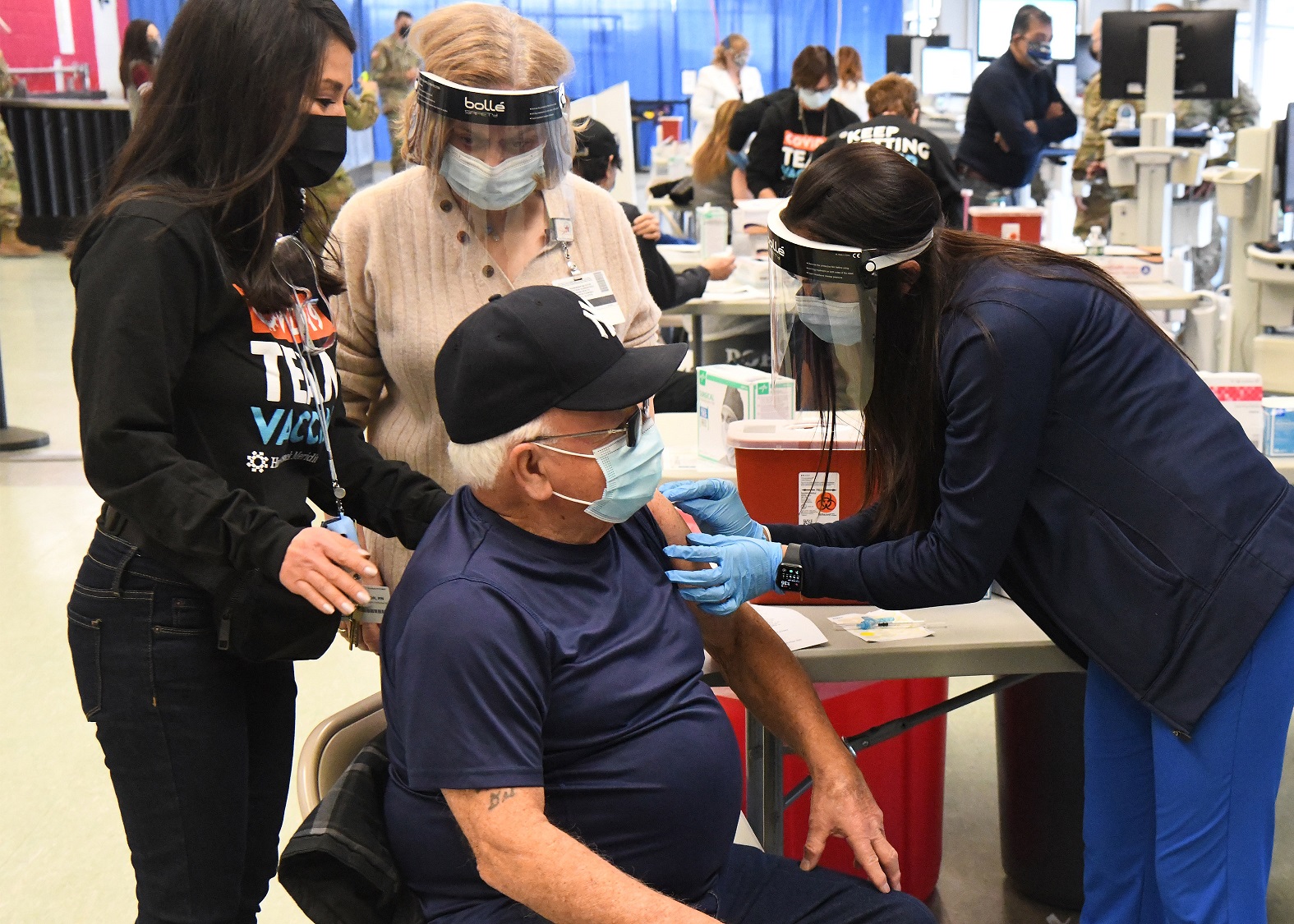How the Shingles Vaccine May Help Prevent Dementia

August 14, 2025
Dementia, including memory loss and confusion, is often thought of as a natural part of the aging process. But it’s not. And there are several ways to help prevent it.
“Prevention is always better than treatment,” says Manisha Santosh Parulekar, M.D., chief of the Division of Geriatrics and co-director of the Center for Memory Loss and Brain Health at Hackensack Meridian Neuroscience Institute at Hackensack University Medical Center. “We talk about this all the time in our office: If we have the potential to prevent something, we should take advantage of it.”
Much of Dr. Parulekar’s advice for reducing dementia risk will sound familiar, including managing chronic conditions and making healthy lifestyle choices; however, one suggestion may be surprising. Get the shingles vaccine (Shingrix).
What Is Shingles?
Shingles is a viral infection caused by the varicella-zoster virus, the same virus that causes chickenpox. After a person recovers from chickenpox, the virus remains dormant in the body and can reactivate years later as shingles. Reactivation is commonly caused by aging, a weakened immune system or high levels of stress.
Shingles typically appears as a painful rash of blisters on one side of the body or face. The blisters scab over in about a week or so and tend to clear up within a month. Shingles can also cause itching, sensitivity to touch, headaches and fever. For some people, shingles pain remains well after the rash has cleared, a condition known as postherpetic neuralgia.
What Is Dementia?
Dementia is an umbrella term for a decline in cognitive function that interferes with daily life. It is not a single disease, but a collection of symptoms that affect memory, thinking and social abilities. While some forms of dementia are irreversible and progressive, others may be linked to treatable conditions like vitamin deficiencies or thyroid problems. Early diagnosis and management can help improve quality of life.
Symptoms of dementia vary but can include:
- Memory loss, especially forgetting recent events
- Difficulty with communication, such as struggling to find words
- Confusion and disorientation
- Impaired reasoning and judgment
- Changes in mood and behavior, including depression or anxiety
- Difficulty completing familiar tasks, such as cooking or managing finances
Dementia results from damage to brain cells, which affects their ability to communicate. Common conditions associated with dementia include Alzheimer’s disease, reduced blood flow to the brain (vascular dementia), Parkinson’s disease and infections.
The Shingles Vaccine Reduces Dementia Risk
A recent study found that the shingles vaccine may reduce the risk of developing dementia by 20 percent over the following seven years. Researchers analyzed health records from a patient population in Wales, where a unique vaccination policy created a natural experiment.
- People who were 79 years old were eligible for the vaccine for a year. Each year, a new group of people became eligible for the vaccine.
- Those who were 80 years old at the beginning of the study were ineligible for the vaccine, due to a limited supply and the vaccine was considered less effective for those over 80.
- Researchers were then able to track the onset of dementia between the vaccinated and unvaccinated people.
The study suggests that viruses affecting the nervous system may contribute to dementia and that preventing shingles could help lower this risk. Researchers aren’t sure exactly what is powering the protective effect of the shingles vaccine, but “maybe by preventing the inflammation associated with shingles infection, we’re seeing an additional benefit of minimizing dementia risk,” says Dr. Parulekar. Emerging research from the European Society of Cardiology supports this idea. The shingles vaccine also lowers the risk of cardiovascular events, such as heart disease and stroke — other inflammation-related conditions — by 23 percent.
Who Should Get the Shingles Vaccine?
Dr. Parulekar and the CDC recommend the shingles vaccine for anyone who is:
- Age 50 or above
- Immunocompromised
- At high risk for dementia, such as those with a family history of the condition
If you received the older version of the shingles vaccine (Zostavax), Dr. Parulekar recommends the newer, two-dose version (Shingrix). You can get the vaccine even if you’ve had shingles in the past.
Other Ways to Help Prevent Dementia
Dr. Parulekar has several other recommendations, in addition to the shingles vaccine, for ways to reduce your dementia risk:
- Stay active throughout the day, getting 30 to 45 minutes of exercise most days.
- Eat a healthy diet, such as the MIND diet.
- Manage chronic conditions such as high blood pressure (hypertension) and diabetes.
- Treat mood and anxiety issues, as these can affect how well our brains work over time.
- Get enough high-quality, deep sleep, which “resets” your brain by flushing toxins associated with dementia. Quality sleep also includes getting tested and treated for sleep apnea and avoiding over-the-counter sleep aids.
Dr. Parulekar emphasizes that reducing your risk of dementia can be an enjoyable and rewarding experience. “Socializing is very important for brain health in general,” she says. “And then doing some sort of cognitive exercise, such as trying a new hobby, recipe or music, can help, too.”
Next Steps & Resources:
- Meet our source: Manisha Santosh Parulekar, M.D.
- To make an appointment with a primary care provider near you, call 800-822-8905 or visit our website.
- Learn more about geriatric medicine and memory loss.
The material provided through HealthU is intended to be used as general information only and should not replace the advice of your physician. Always consult your physician for individual care.







